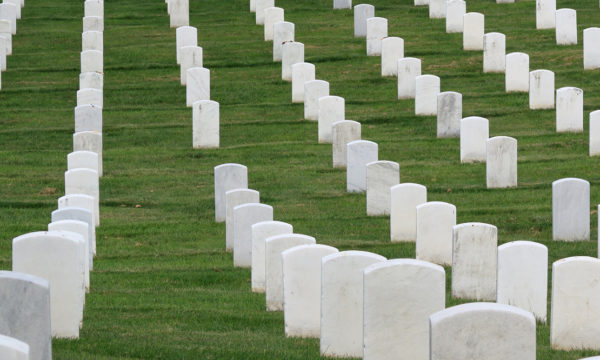So, What Do You Do? Grai St. Clair Rice, Beekeeper
April 17, 2019
“So, What Do You Do?” is an MM series featuring extraordinary women in the kinds of jobs that make you sit up and say, “What’s that like?” Every week, another original entrepreneur, executive, artist, or scientist will own the answer by sharing what she does, how she does it, and why she does what she does. Up this week, Grai St. Clair Rice, organic beekeeper, on work ethics, big nectar flows, and what she and bees have in common.
Delightful. Mesmerizing. Spiritual. This is how writer, photographer, and apiarist Grai St. Clair Rice describes the experience of working with bees. St. Clair Rice was an editor and producer at CNN when she observed a beekeeper working in her community garden in New York City. When she left the network, she wanted to create a film series on “the philosophy of life through the eyes of a beekeeper,” as she puts it. “I quickly realized that I didn’t know enough to do it,” she says, “yet I was completely drawn to the bees. Smitten by them, really. The sunlight hitting their wings in flight. That incredible smell of beeswax and honey.” With her partner Chris Harp, St. Clair Rice founded HoneybeeLives, an organization that promotes organic beekeeping in the area. She is also the founder of the Ulster County Beekeeping Association. “I never thought I’d be doing this for a living,” says St. Clair Rice, “but I hope to do it for the rest of my life. Bees have a lot to say to us.”
This is just some of what she does in a day.
Sees bees for the heroes they are.
Bees work for the good of the hive. They don’t have egos. Each one makes about 1/12th of a teaspoon of honey in their lifetime—honey they are never going to eat. Other bees eat it. You can pull out a frame of honeybees and they still keep building the comb, going about their business.
Pursues her many interests through beekeeping.
I was drawn to bees intellectually and spiritually, but I had no idea I’d be able to exercise my interest in botany, nature, and community building. Now I photograph, write, and teach others about bees.
Tries to slow way down.
When you’re working as a TV editor/producer, it’s as if your finger is in a light socket. I’m a city girl. I move really quickly. But I can’t do that in a hive. To be a good beekeeper, you can’t be in a hurry. You can’t be answering your phone. You can’t be thinking about what you’re going to have for dinner. You can’t be intoxicated. You need to be completely grounded and open, and turn on all your senses—sight, sound, feel, smell. As soon as I walk away from the hive, I become a Whirling Dervish again. I haven’t been able to learn how to be quiet in the bigger picture of my life. But when I’m in a hive, I’m completely grounded.
Avoids beekeeping accoutrements.
I don’t use gloves or a hazmat suit. If you have the veil on, you can’t see well. If you have the gloves on, you can’t feel well. That’s part of being grounded: creating an understanding of what your role is as the nurturer of nature. If you go into a hive gently, the bees’ defenses won’t be up. They’ll be gentle, too.
Works as hard as the bees do.
What makes me feel like bees are my kindred spirits is their work ethic. The bee population starts to build up around the middle of February. That’s when the queen starts to lay eggs for the spring, and by the end of March into April, the bee population grows. In addition to our own bees, we take care of bees at farms and private estates for people who want bees but don’t necessarily want to take care of them. By late spring, we’re working 16 hours a day because we have a lot of bees to take care of. You can hardly breathe sometimes. You get the biggest nectar flow at that time, so you’re eating dinner at 11 p.m., getting five hours of sleep, and starting it all again the next morning. It’s intense, but it’s also exhilarating. Swarm season in May and June is pretty unpredictable; it’s like being part of a volunteer firefighter department. When the phone rings, you drop what you’re doing, grab the ladder, and go.
Worries as cold weather approaches.
The end of July to early August is down time for beekeepers in the Northeast. In the middle of August, you have to start judging whether your bees are strong enough to make it through the next winter. As the days get shorter, you tighten up your hives and wrap them. I lose sleep, toss and turn, because it’s 5 degrees out and the bees need to keep the hive at 42 degrees. Then I turn to my writing and teaching. My day and my year are driven by the seasons and cycles of life in a colony of bees.
Cares about the big picture.
I want to inspire people to be a positive impact on evolution, to take responsibility and be gentle to the earth and the people around them. We can understand and respect our environment instead of using it up for our own purposes.









